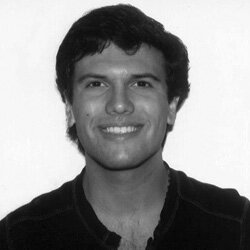Can Puerto Rico’s quest for statehood affect the presidential race?
|
Earlier this month, Republican presidential hopeful Ben Carson announced his support for Puerto Rico’s statehood. In doing so, he joined his GOP rivals from Florida, Marco Rubio and Jeb Bush, who have voiced their support for the statehood cause over the past year.
So far, no Democratic presidential candidates have declared support for statehood.
The question of Puerto Rico’s political status is obviously a crucial one for the people living on the island. It’s also important to many Puerto Ricans who, like me, have grown up away from the island we call Borikén. As such, it should be important to the politicians who want our votes.
Because of the island’s territorial (and, in many ways, colonial) status, Puerto Ricans on the island cannot vote in presidential elections, though both major parties do hold primary elections there every 4 years. But the majority of boricuas (Puerto Ricans) now live (and vote) in other parts of the U.S. rather than in Puerto Rico itself — the result of our ongoing, century-long diaspora.
The pace of migration from Borikén doesn’t show signs of slowing down, either; instead, the number of people migrating to the mainland has reached a level not seen since our Great Migration half a century ago. But while the historical destinations of our diaspora (namely Hawaii, Chicago and New York) still have huge boricua communities, this most recent wave of the diaspora has broken on a closer shore — that of the infamous swing state of Florida.
The boricua community in Florida, and especially central Florida, has doubled. There are now about as many Puerto Ricans living in contested districts near Disneyworld as there are living in solid-blue districts near Times Square. And since island-specific parties focused on the statehood question dominate Puerto Rico’s political landscape, Puerto Ricans coming to the mainland don’t automatically have a bias toward either Republicans or Democrats.
By talking about statehood for Puerto Rico, then, Carson, Rubio and Bush are talking as much to the increasingly powerful boricuas in Florida as to those still on the island. Certainly, statehood would most directly affect the latter: Beyond the fact that a majority of voters in Puerto Rico dislike the current territorial status and support statehood, becoming el estado 51 would mean a whole host of economic benefits for the island — including access to Chapter 9 bankruptcy frameworks that would help solve its massive debt crisis.
Many of those Puerto Ricans in Florida (and many of us in the other 49 voting states) still have a deep love for the home of our ancestors. That love makes us want to do right by Borikén even if we’re too far away to hear the coquí, our soon-to-be-state’s animal, sing. That love can, and will, guide how we vote over the next 12 months.
Any candidate wanting to win Florida, either in the primary on March 15 or in the general election a year from now, needs to keep that in mind.
Johnathan F. Bowes
Science & Society
Johnathan Bowes, or “JoBo”, is a MA student in Bioethics and Science Policy planning to work on ethics of personalized medicine and DTC genomics.
More Info

